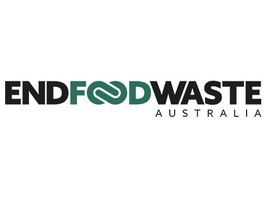End Food Waste Australia with the Australian Bananas Growers' Council, Melons Australia, and the horticulture industry have released a new, nation-wide plan to help save fresh produce and halve Australia's food waste by 2030.
Fruits and vegetables are Australia's most wasted foods. More than three million tonnes of fruit and vegetables go to waste every year in Australia – enough to fill the Melbourne Cricket Ground to the brim five times.
New action plans have been developed to tackle horticulture food waste – identifying the nine priority actions to reduce food waste from farm to retail. The Horticulture Sector Action Plan provides an Australian-wide view of key horticulture food waste root causes and identifies the most impactful actions to reduce food waste.
"Reducing horticulture food waste is critical to reaching Australia's goal of halving food waste by 2030 and will have positive impacts for everyone," says Dr Steven Lapidge Chief Executive Officer of End Food Waste Australia. "Tackling fresh produce waste would provide billions of dollars of economic benefits, reduce the growing environmental impact of our food system, and will directly help feed millions more food insecure Australians every year."
The nine key action areas identified in the plan aim to reduce fresh produce food waste that occurs at every stage of the food supply chain – on farm, during transportation and manufacturing, and in retail stores.
Interventions include improving food waste data and measurement, exploring whole crop purchasing arrangements, reviewing product specifications, improving logistics to get fresh produce to food rescue charities, investing in and growing value-add opportunities and Australia's upcycled foods market – such freeze-dried fruits, vegetable powders – along with many more.
The most impactful interventions depend on the produce type, and bananas and melons have led the way with dedicated Food Waste Action Plans and targeted priority actions.
"Food waste is a $36 billion challenge that is far too big for anyone, or any single sector, to tackle alone. The horticulture industry, with leadership from the bananas and melons industry and support from Queensland Government and Hort Innovation Australia have come together to demonstrate collaboration on sustainability leadership in the development of these plans," says Dr Steven Lapidge.
For more information:
Amelia Mitchell
End Food Waste Australia
Tel.: +61 0458 136 858
Email: amelia@endfoodwaste.com.au
